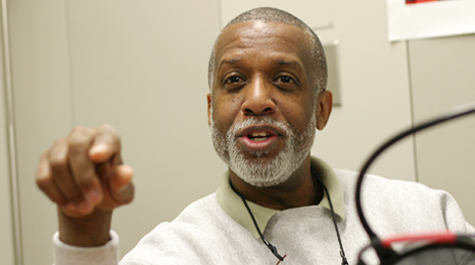Sims: Ethical lapses and moral courage in business
Sims, the Floyd Dewey Gottwald Senior Professor in the Graduate School of Business at the College, has written and lectured on business ethics, leadership and change management for the past two decades. He used to think major ethical breakdowns would occur once or twice every 10 years. Now, he is down to two.
Recently he published his 28th book, Executive Ethics: Ethical Dilemmas and Challenges for the C-Suite. Co-edited with a former graduate student, Scott A. Quatro, the book seeks to bring together experienced executives, scholars and managers to reflect upon senior-level decision making regarding lapses in ethical conduct as well as to propose means by which responsible corporate cultures can be constructed.
Among the contributors are Bill Geary and Herrington Bryce. Geary, an associate professor of business administration and assistant dean for undergraduate studies at the Mason School, brings an accountant’s perspective to the effort, one that is able to say “the emperor has no clothes,” according to Sims. Bryce, the Life of Virginia Professor of Business at the Mason School, adds insight into the ways ethical dilemmas facing corporate leaders impact leaders in non-profit enterprises.
Sims’ chapter, "A C-Suite Challenge," argues that “ethical lapses or scandalous organizational behavior … constitute a type of social drama [that] revolves around a breach of group or societal norms or rules in some important public manner.” He details the implications of such breaches, the reasons behind them, and he presents constructive strategies for building ethical environments, beginning at the top of an organization. “C-suite executives need to be transformational if they are committed to building ethical work environments,” he writes. “This means they must … have a fundamental understanding of the highly complex factors that support and make possible collective ethical effort in an organization.”
During a recent interview conducted at the Swem Media Center, Sims spoke about his current book, about his role as crusader for businesses “doing the right thing” and about his own “conspiracy theory”—yes, the public often pays for the money-making-at-all-costs mindset that steers much corporate policy, he suggests.
Sims also alluded to his own ace-in-the-hole, as it were: William and Mary undergraduate business students who are riding a current wave of responsible global thinking.

















